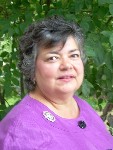 The following questions are from an interview in 2014:
The following questions are from an interview in 2014:
Q1: Describe your current position/role.
Dr. Haskins is currently an associate professor at the Norwegian University of Science and Technology (NTNU). She teaches students courses in Systems Engineering and systems thinking, which she considers two distinct parts of the Systems Engineering discipline. Cecilia has taken on large roles with INCOSE where she serves on the Board of Directors as Director for Communications and has been the INCOSE New Chapter Coordinator since 1999. In addition, she has been part of the INCOSE Events Committee since 2004. Cecilia is one of the original 37 INCOSE CSEPs. She took the original six-hour beta exam in 2003 and has just been awarded the Founders Award while attending her 22nd consecutive INCOSE International Symposium in Las Vegas, Nevada.
Q2: What are one or two of your proudest professional accomplishments?
Dr. Haskins' biggest accomplishment has been to inspire young engineers as an educator. This opportunity derives from a career move from industry to academia after moving to Norway and allows her the opportunity to pass on the importance of and an appreciation for Systems Engineering. Her classroom is international and stimulating. It is like having a mini-United Nations teaching environment. She is also extremely grateful for the leadership, friendship, and learning opportunities afforded to her through INCOSE.
Q3: What is the biggest challenge you face as a Systems Engineer?
Dr. Haskins' greatest challenge is communication. To expand on Scott McArthur’s keynote address at the INCOSE IS 2014, communication and interpersonal skills are often described as “soft” skills while engineering and design are considered “hard” skills. In practice, most engineers are good at the “hard” skills. These are what they have been educated to do. Often they have little or no training or practice in the soft skills. Even recognizing the importance of these soft skills does little to prepare a Systems Engineer for some of the communications challenges they will face. To paraphrase Scott, these soft skills must be deliberately practiced to build up the scar tissue of experience.
Q4: What advice do you have for individuals starting their career as a Systems Engineer?
Dr. Haskins' career has been very atypical. She has always considered herself a Systems Engineer from day one on her first job. If she were to give advice to a new engineer desiring to become a Systems Engineer, she would tell them to be curious and get in touch with their inner three-year-old. Three is when most people learn that magical word “why.” If one is asking why and exploring their first job with curiosity, they are engineering in a systematic way. Cecilia believes in consistently acting this way and to find oneself in a System Engineering job before long.
Q5: How do you continue to learn about SE? What professional development activities do you do?
Being in academia is a constant learning experience. Dr. Haskins learns at least one thing from students every day. Students have a different perspective and different ideas. Part of her learning comes with the research she does, which means she reads a lot. INCOSE is also an important source of her good learning opportunities.
Q6: What are the next career goals you want to achieve?
Dr. Haskins is very happy in academia. Her participation in INCOSE will continue. Prior to retirement, Dr. Haskins would like to establish a curriculum and Master of Science in Systems Engineering program at the Norwegian University of Science and Technology.
Q7: What are some of your hobbies/interest outside of work?
Dr. Haskins enjoys crime novels, travel, and spending time with her growing family.
Q8: Are there any other final comments you would like to make?
The 25th anniversary INCOSE symposium will be held in Seattle, Washington next year. Dr. Haskins plans to be there, and she hopes each SEP considers going as well to enjoy the advantages of networking with each other.